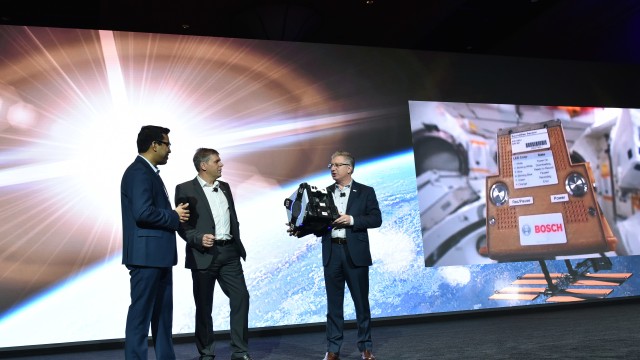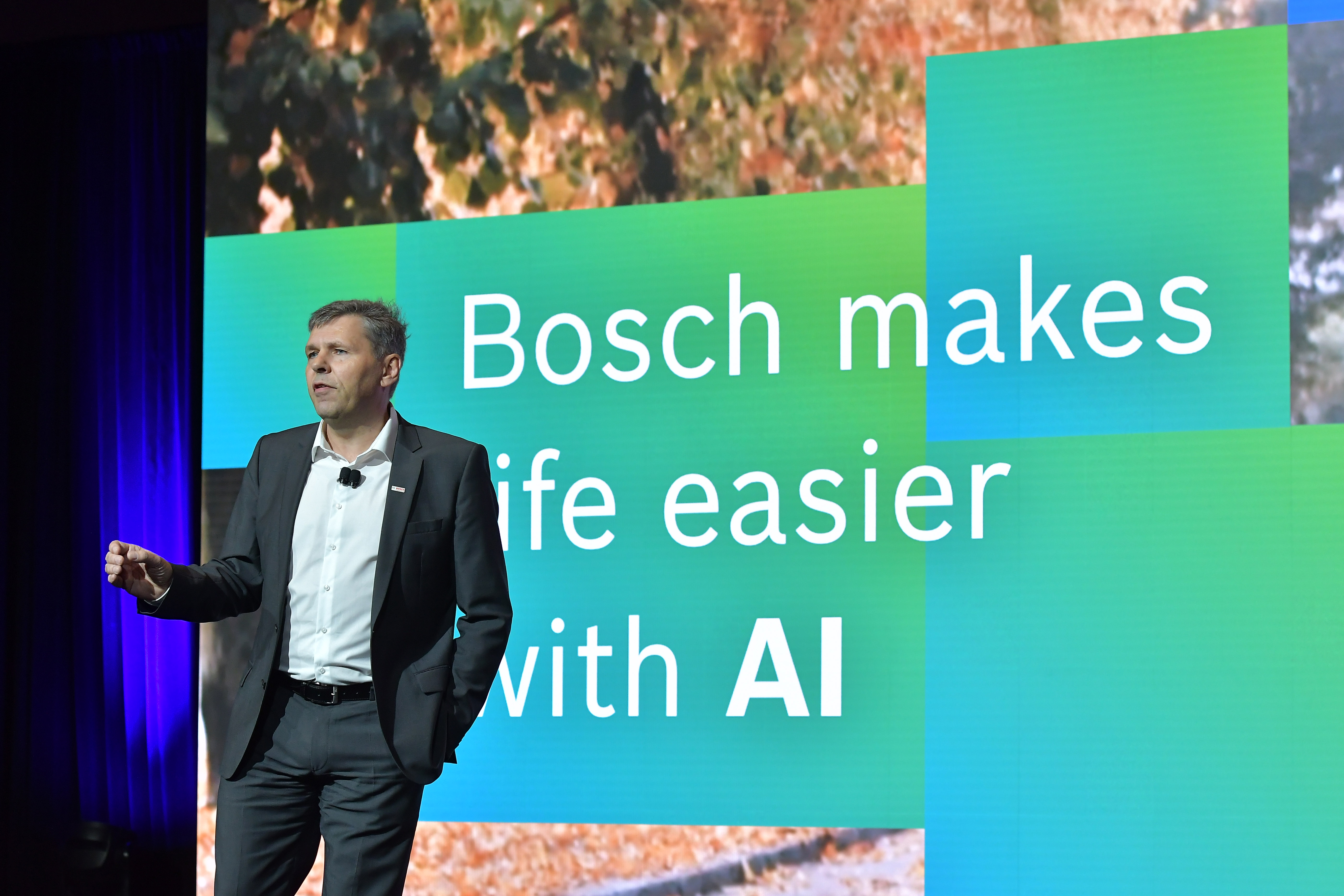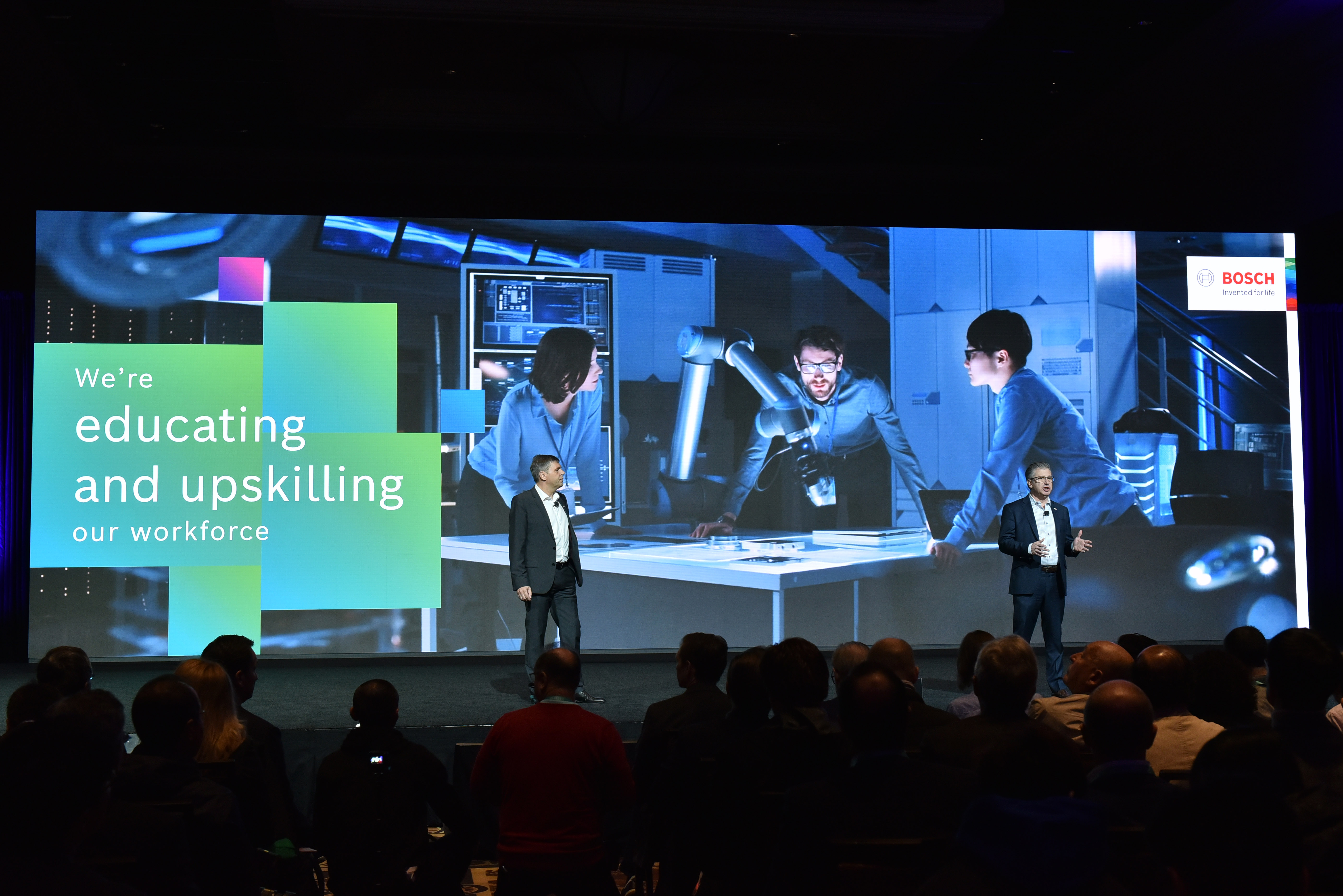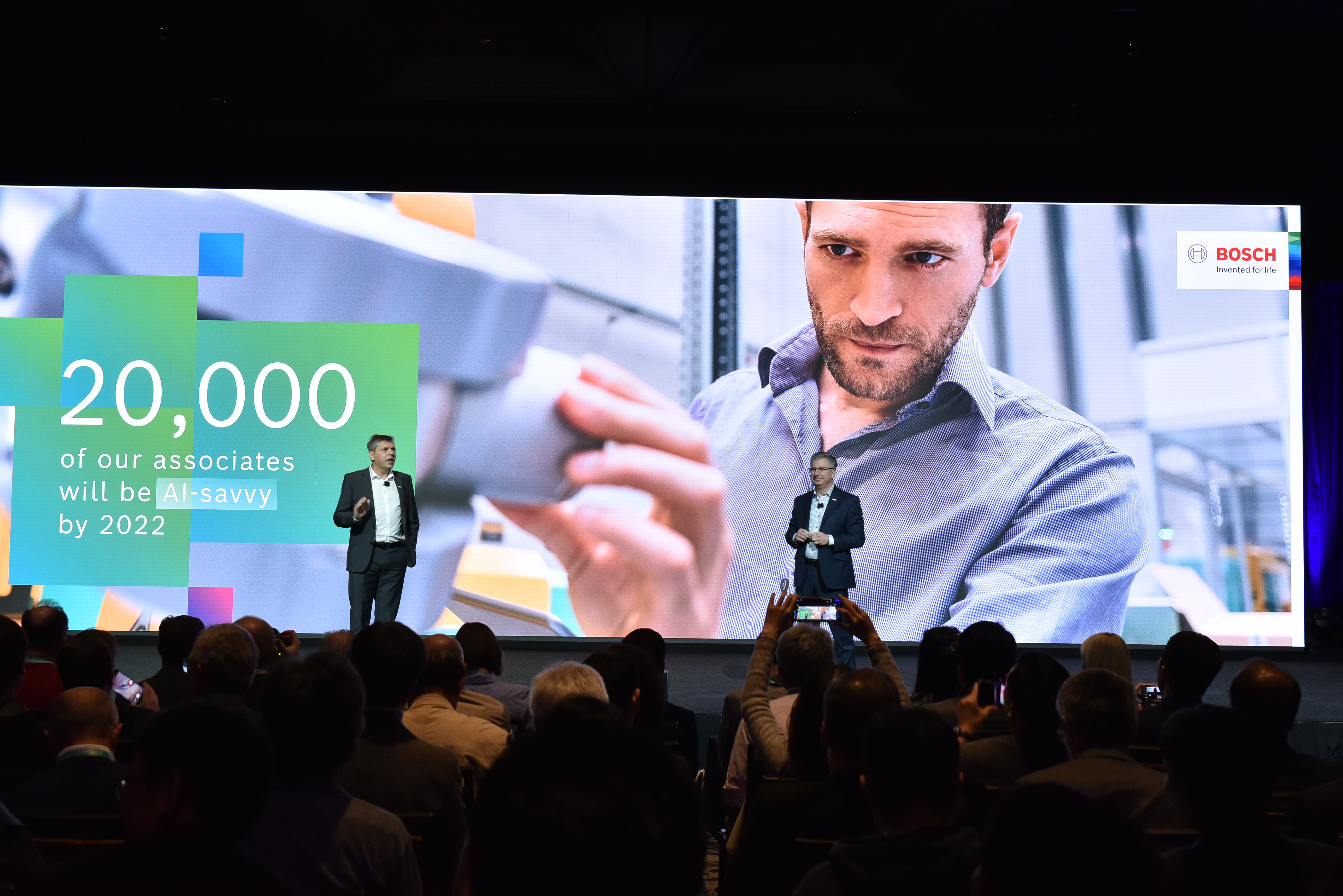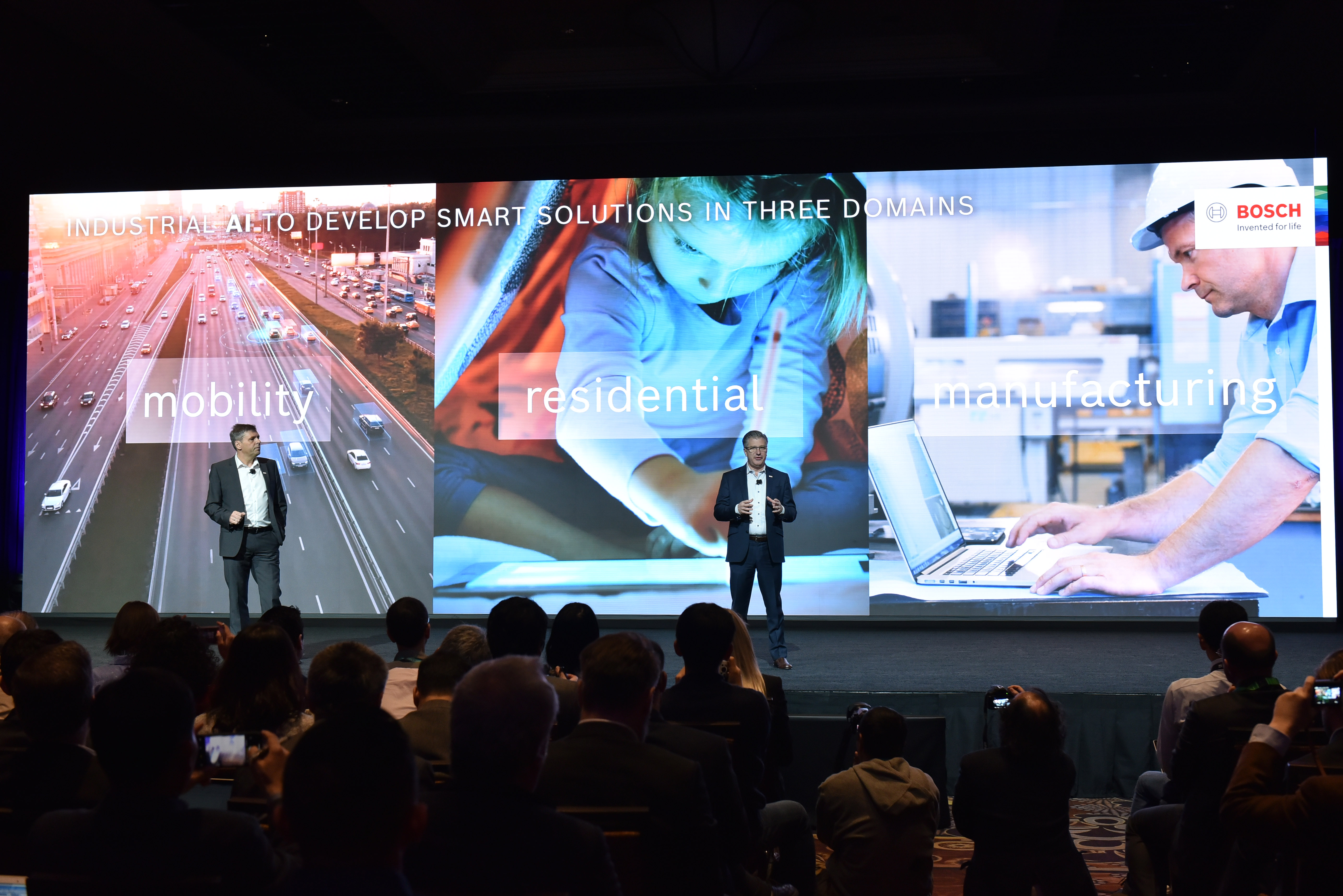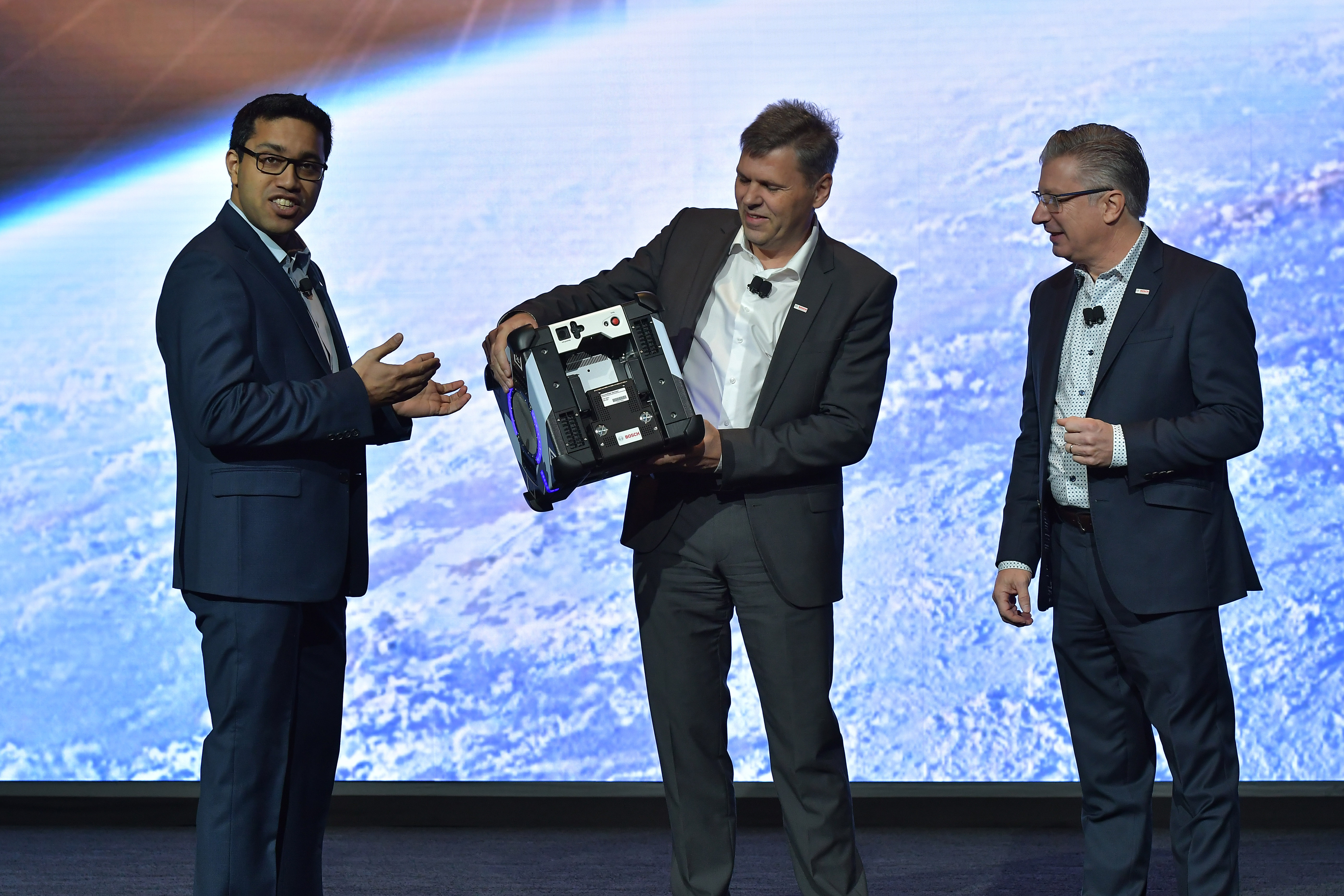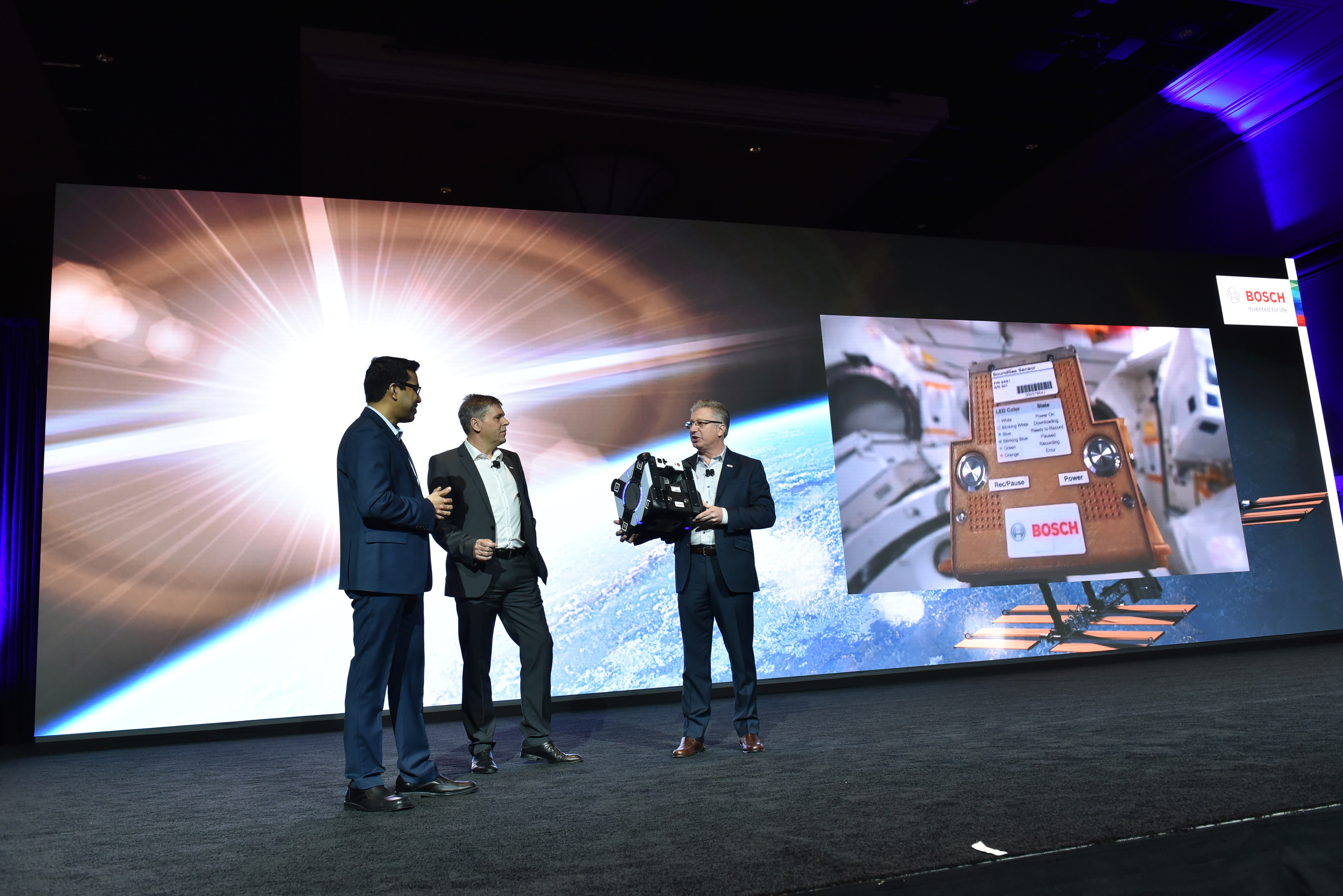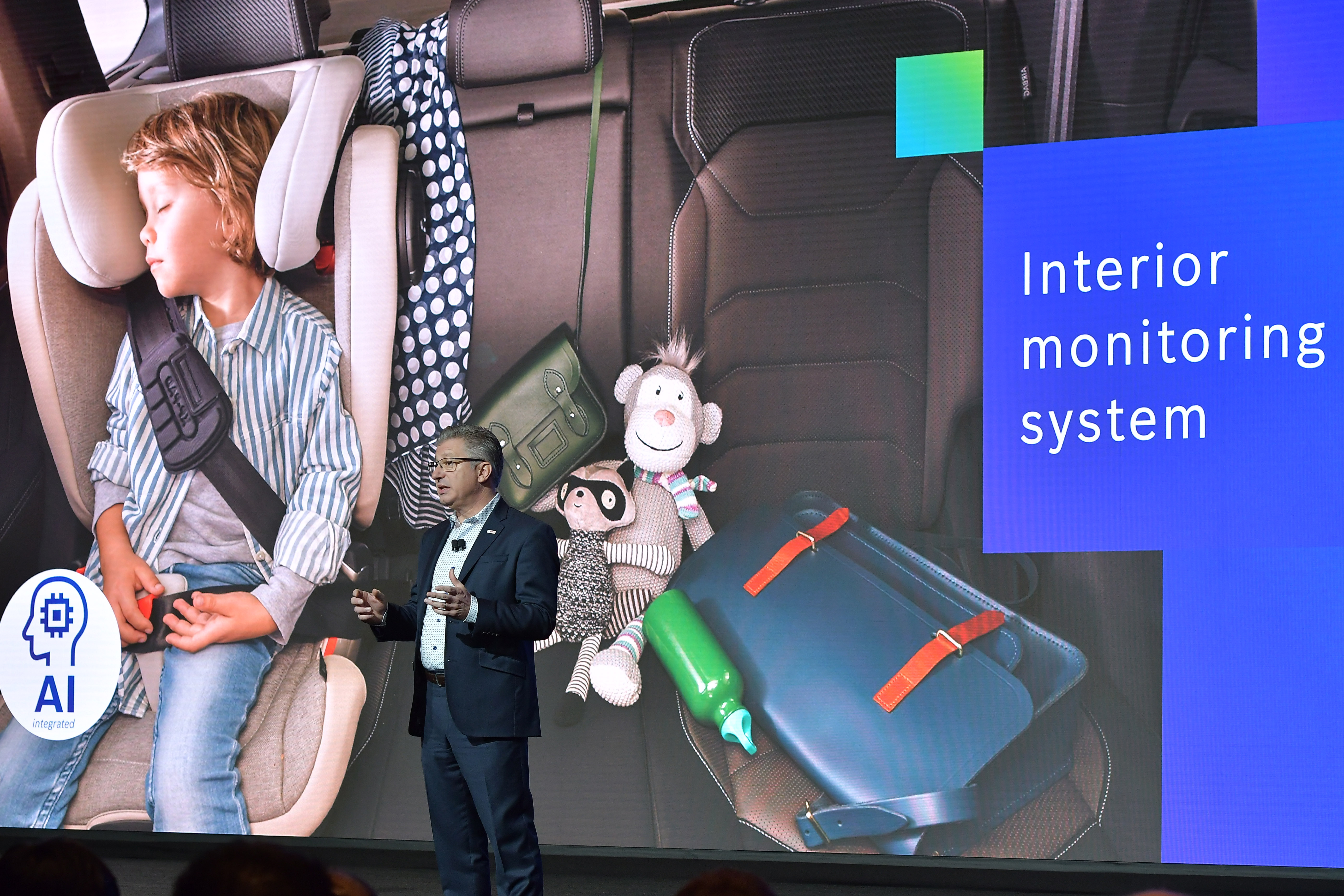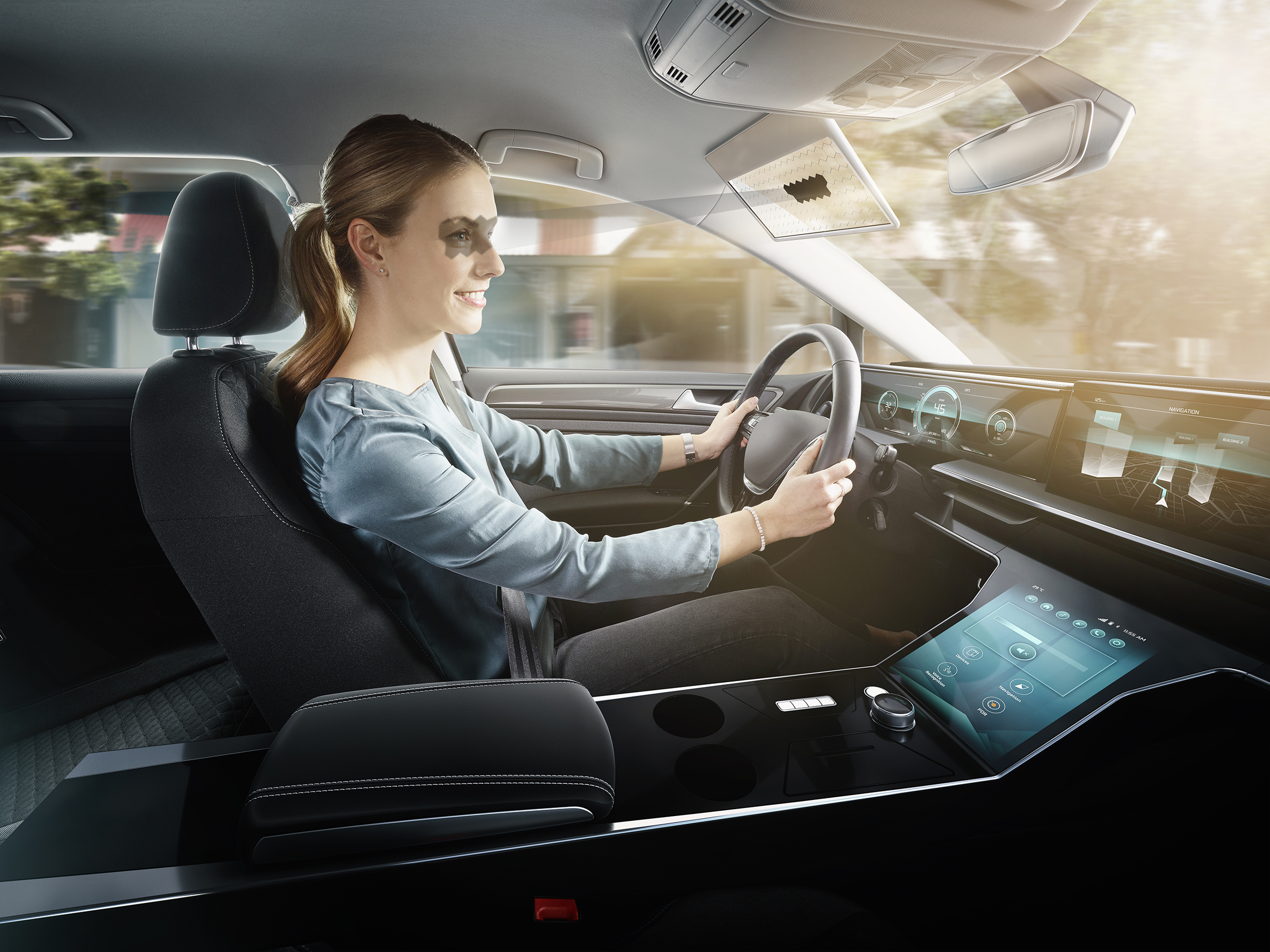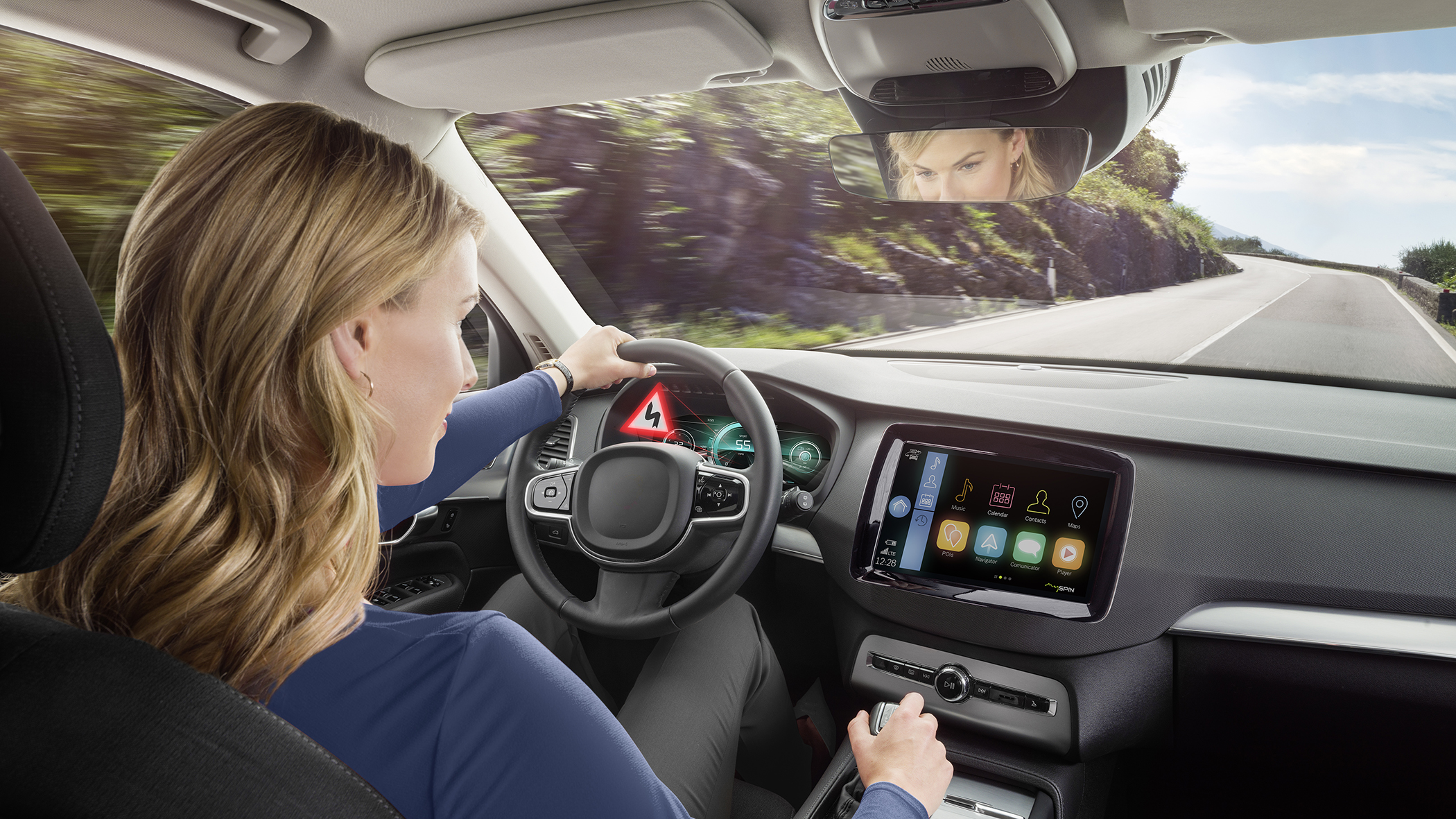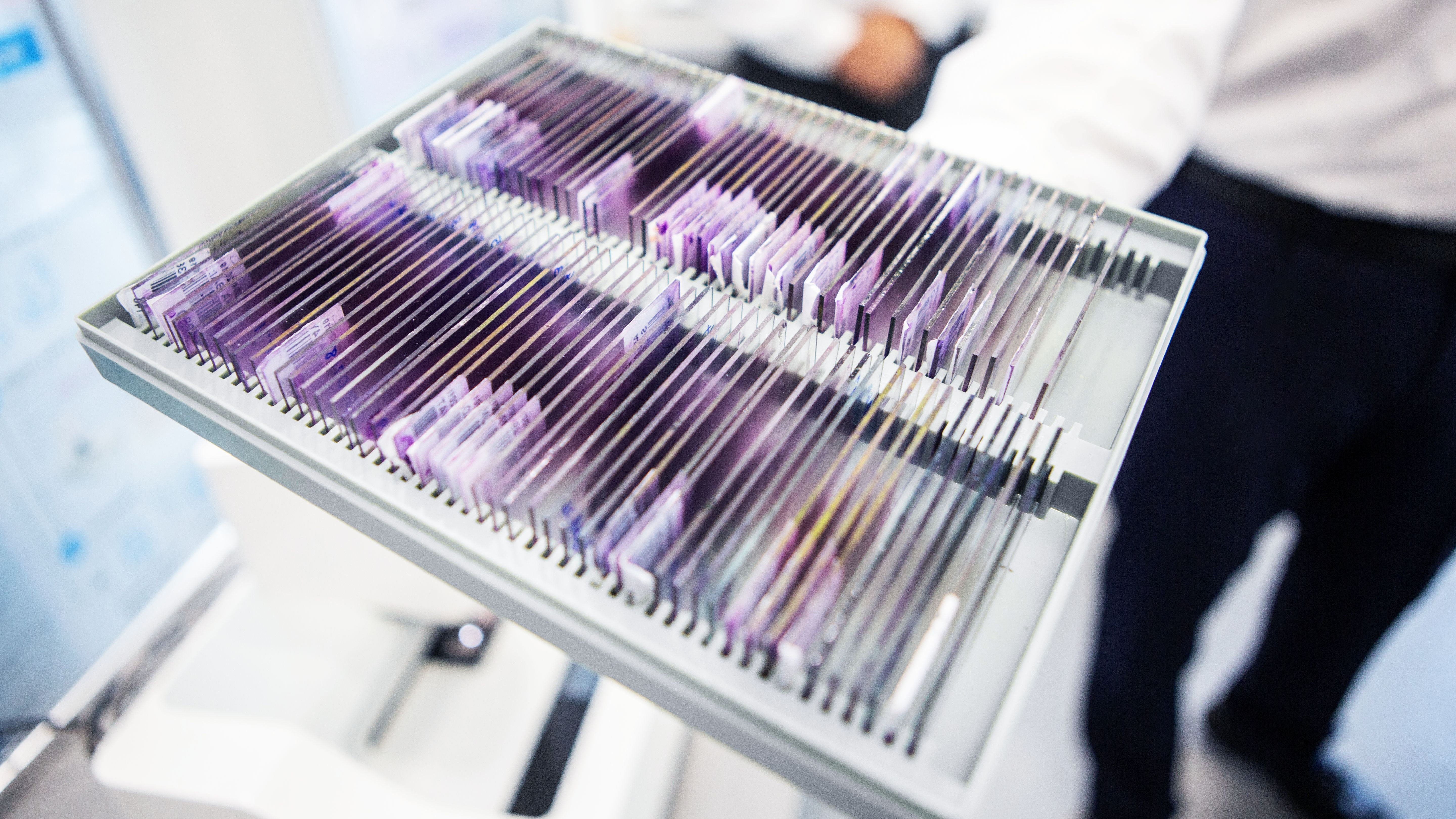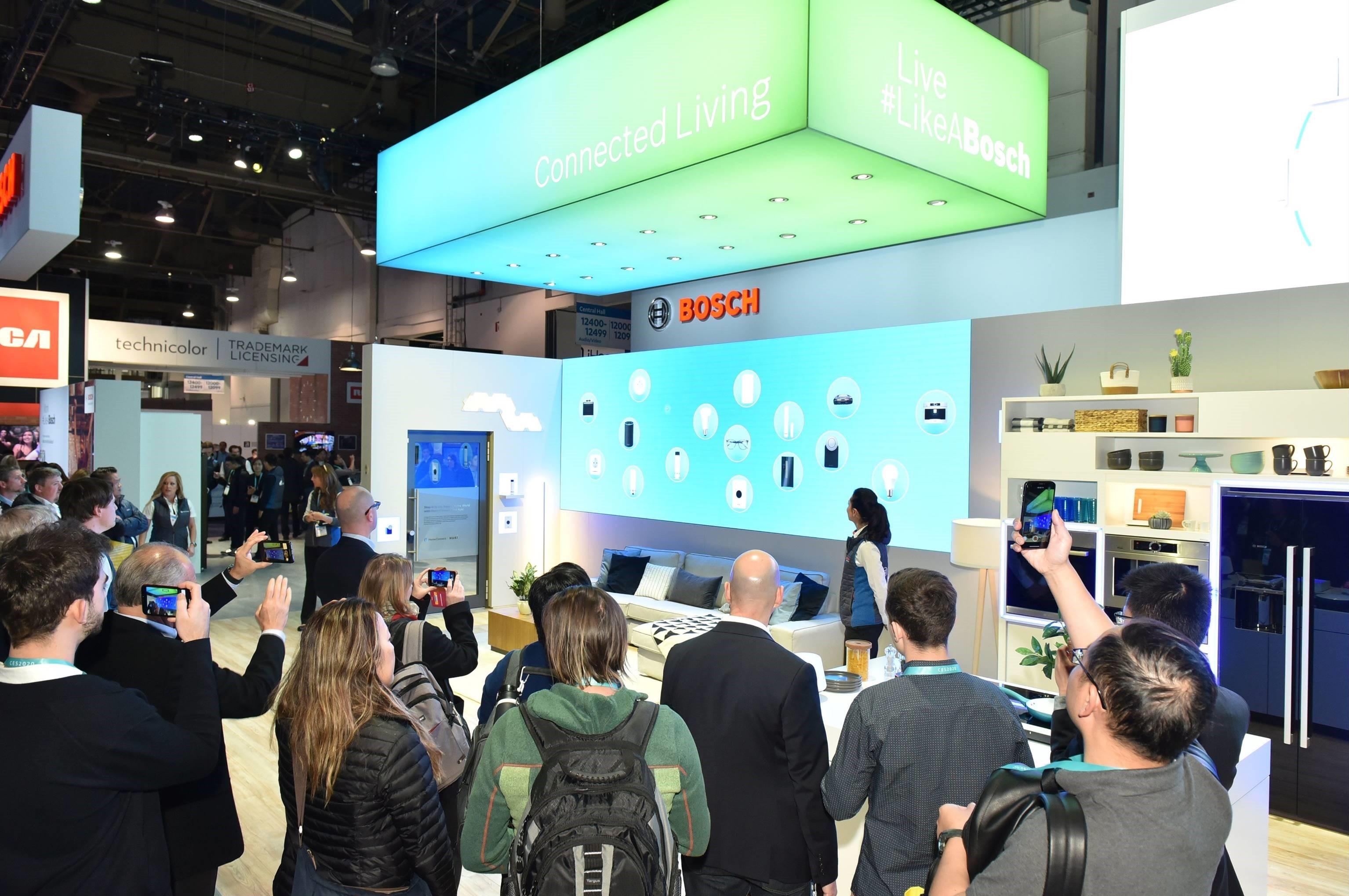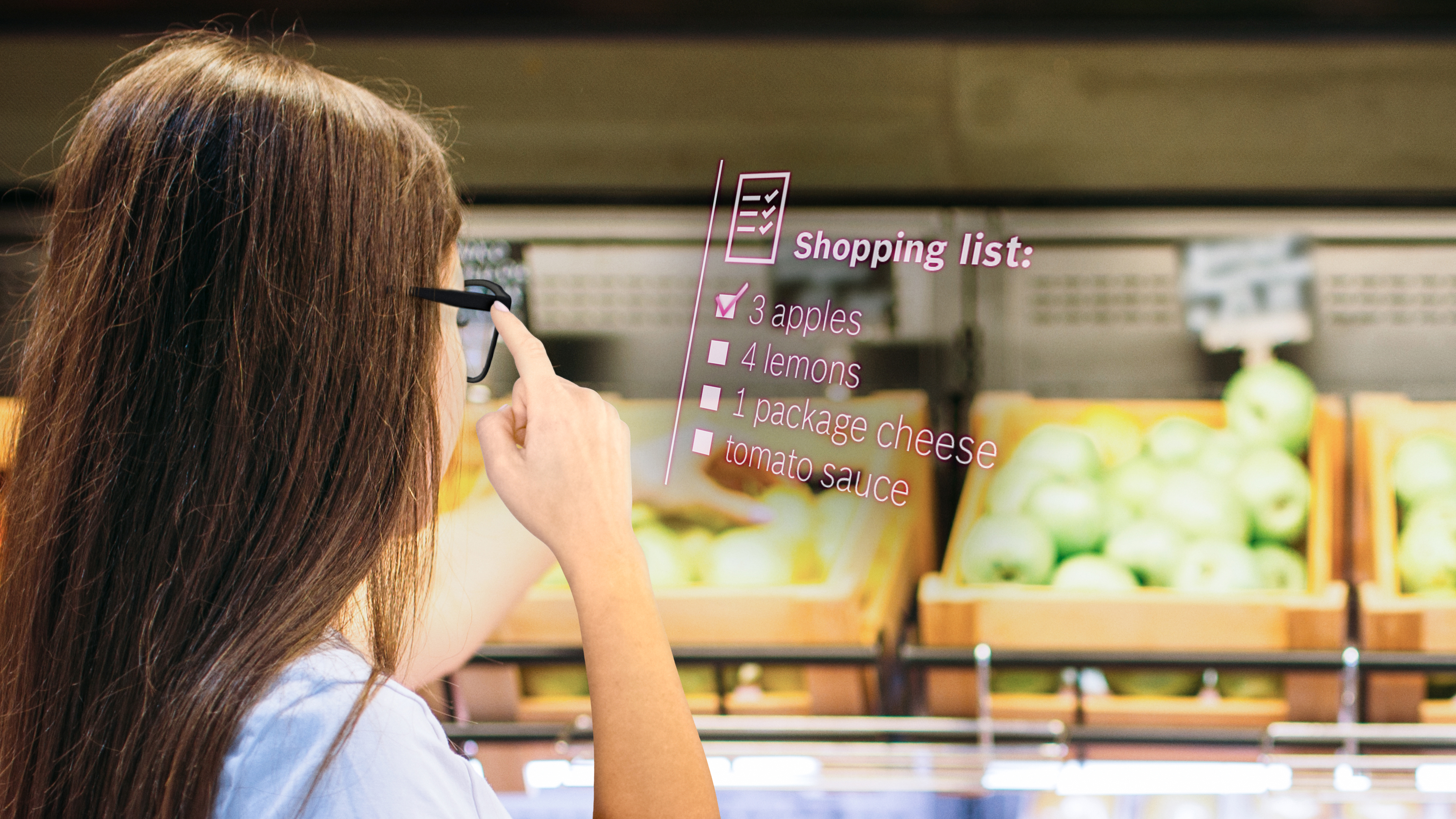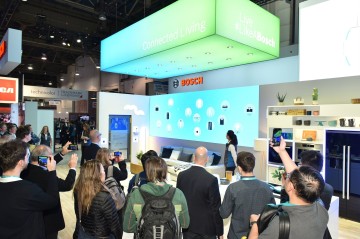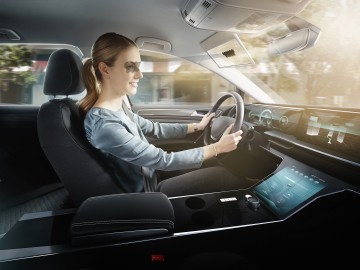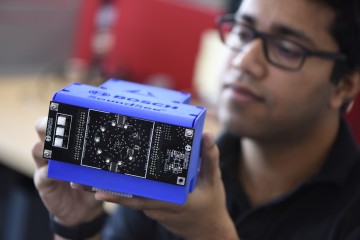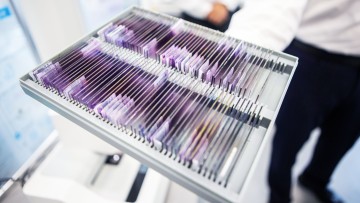Las Vegas, NV, USA – Whether for automated driving, the smart home, or manufacturing: artificial intelligence (AI) has become an integral part of everyday life. Bosch uses AI and the internet of things (IoT) to make life easier for people and as safe as possible. Here, the slogan “Beneficial AI. Building trust together” sums up the technology and services company’s approach. The focus is on safe and robust AI for the manufacture of smart products, which Bosch will be showcasing at this year’s CES. One of these products is the Virtual Visor: an AI-based digital vehicle sun visor that will be making its debut at the world’s largest trade fair for consumer electronics. The product has also won a CES® Innovation Award, as has Bosch’s 3D display for the car.
Find all our highlights of the CES 2020 in our press kit: #BoschCES 2020
Bosch at CES 2020:
- PRESS CONFERENCE: From 9:00 to 10:30 a.m. local time on Monday, January 6, 2020 in Ballrooms B, C, and D, Mandalay Bay Hotel, Las Vegas
South Convention Center, Level 2 - BOOTH: Tuesday to Friday, January 7–10, 2020, in the Central Hall, booth #12401
- FOLLOW the Bosch CES 2020 highlights on Twitter: #BoschCES
- PANELS WITH BOSCH EXPERTS: Wednesday, January 8, 2020, 10:15 to 11:15 a.m. (local time)
Growth of Apprenticeships for “New Collar” Jobs session with Charlie Ackerman, Senior Vice President of Human Resources, Las Vegas South Convention Center
Contact persons for press inquiries:
Melita Delic, +49 711 811-48617, +49 160 7020086
Trix Böhne, +49 30 32788-561, +49 173 5239774
Irina Ananyeva, +49 711 811-47990, +49 152 59753284
Annett Fischer, +49 711 811-6286, +49 152 08651292
Christiane Wild-Raidt, +49 711 811-6283, +49 152 22978802
Language versions
Bosch Sensortec GmbH is a fully owned subsidiary of Robert Bosch GmbH that is dedicated to delivering a complete portfolio of microelectromechanical systems (MEMS) sensors and solutions that enable consumer electronics to be connected. Bosch Sensortec develops and markets a wide portfolio of MEMS sensors and solutions tailored for smartphones, tablets, wearable devices and IoT (Internet of Things) applications.
The product portfolio includes 3-axis acceleration, gyroscope and geomagnetic sensors, integrated 6- and 9-axis sensors, environmental sensors, and a comprehensive software portfolio. Since its foundation in 2005, Bosch Sensortec has emerged as the MEMS technology leader in the markets it addresses. Bosch has been both a pioneer and a global market leader in the MEMS sensor segment since 1995 and has, to date, sold more than 7 billion MEMS sensors. Bosch sensors can be found in three out of four smartphones worldwide.
For more information, go to www.bosch-sensortec.com, twitter.com/boschMEMS.
Mobility Solutions is the largest Bosch Group business sector. It generated sales of 42.1 billion euros in 2020, and thus contributed 59 percent of total sales from operations. This makes the Bosch Group one of the leading automotive suppliers. The Mobility Solutions business sector pursues a vision of mobility that is safe, sustainable, and exciting, and combines the group’s expertise in the domains of personalization, automation, electrification, and connectivity. For its customers, the outcome is integrated mobility solutions. The business sector’s main areas of activity are injection technology and powertrain peripherals for internal-combustion engines, diverse solutions for powertrain electrification, vehicle safety systems, driver-assistance and automated functions, technology for user-friendly infotainment as well as vehicle-to-vehicle and vehicle-to-infrastructure communication, repair-shop concepts, and technology and services for the automotive aftermarket. Bosch is synonymous with important automotive innovations, such as electronic engine management, the ESP anti-skid system, and common-rail diesel technology.
Bosch Healthcare Solutions GmbH is a wholly owned subsidiary of Robert Bosch GmbH. The subsidiary was established in 2015 with the aim of developing products and services that improve people’s health and quality of life. About 120 associates (state 2019) are currently employed at the company’s headquarters in Waiblingen, Germany. The subsidiary’s solutions draw on the Bosch Group’s core competencies: sensors to collect data, software to evaluate that data, and services based on this data analysis.
More information is available online at www.bosch-healthcare.com
About Bosch eBike Systems
A new generation of bikes is taking town and country by storm and is already a part of everyday life. eBikes are a modern means of transport for modern people: people in a hurry and people who prefer to take it easy, the fit and the comfort lovers, commuters and pleasure cyclists and, of course, young and old. The tailwind of technology-leading eBikes made by what are already more than 70 leading brands in Europe is powered by components that Bosch is developing to perfection. The Bosch portfolio ranges from the highly efficient drive unit (motor and gearbox) and high-quality batteries to a smart on-board and cycle computer that can be used intuitively. Perfect coordination of components holds the key to typical Bosch performance in terms of both comfort and efficiency.
Like other Bosch products, the eBike systems benefit from the Bosch Group’s technology and production know-how. From conception and engineering to manufacturing, marketing and after-sales service, Bosch eBike Systems constantly set new standards for the eBike industry. The Bosch Group’s experience in the areas of electric motors, sensor technology, displays and lithium-ion batteries ensures that Bosch eBike systems use technology that is invented for life and that eBike users have their fun.
For more information please visit www.bosch-ebike.de
Bosch Connected Devices and Solutions GmbH was founded in 2013 and is a fully owned subsidiary of Robert Bosch GmbH. The company was set up to design, develop and market innovative connected devices and tailor-made solutions for the Internet of Things. Our competency in electronics, sensor technology and software enable new business models for global markets. Bosch Connected Devices and Solutions is headquartered in Reutlingen, Germany. In 2015 Bosch Connected Devices and Solutions opened offices in Chicago, USA and Shanghai, China, in 2016 a sales office in Singapore was opened.
For more information, go to www.bosch-connectivity.com
The Robert Bosch Smart Home GmbH was founded as a wholly-owned subsidiary of the Robert Bosch GmbH. Based in Stuttgart-Vaihingen, the company offers intelligent solutions for retail customers who desire a networked home from a single source. Bosch Smart Home simplifies the life at home by unobtrusively controlling routine activities in the background. It offers greater comfort, convenience, security and energy efficiency.
More information is available at www.bosch-smarthome.com.
The Bosch Group is a leading global supplier of technology and services. It employs roughly 375,000 associates worldwide (as of December 31, 2015). The company generated sales of 70.6 billion euros in 2015. Its operations are divided into four business sectors: Mobility Solutions, Industrial Technology, Consumer Goods, and Energy and Building Technology. The Bosch Group comprises Robert Bosch GmbH and its roughly 440 subsidiaries and regional companies in some 60 countries. Including sales and service partners, Bosch’s global manufacturing and sales network covers some 150 countries. The basis for the company’s future growth is its innovative strength. Bosch employs 55,800 associates in research and development at 118 locations across the globe. The Bosch Group’s strategic objective is to deliver innovations for a connected life. Bosch improves quality of life worldwide with products and services that are innovative and spark enthusiasm. In short, Bosch creates technology that is “Invented for life.”
The company was set up in Stuttgart in 1886 by Robert Bosch (1861-1942) as “Workshop for Precision Mechanics and Electrical Engineering.” The special ownership structure of Robert Bosch GmbH guarantees the entrepreneurial freedom of the Bosch Group, making it possible for the company to plan over the long term and to undertake significant up-front investments in the safeguarding of its future. Ninety-two percent of the share capital of Robert Bosch GmbH is held by Robert Bosch Stiftung GmbH, a charitable foundation. The majority of voting rights are held by Robert Bosch Industrietreuhand KG, an industrial trust. The entrepreneurial ownership functions are carried out by the trust. The remaining shares are held by the Bosch family and by Robert Bosch GmbH.
Additional information is available online at www.bosch.com and www.bosch-press.com, http://twitter.com/BoschPresse.
The Bosch Group is a leading global supplier of technology and services. It employs roughly 395,000 associates worldwide (as of December 31, 2020). The company generated sales of 71.5 billion euros in 2020. Its operations are divided into four business sectors: Mobility Solutions, Industrial Technology, Consumer Goods, and Energy and Building Technology. As a leading IoT provider, Bosch offers innovative solutions for smart homes, Industry 4.0, and connected mobility. Bosch is pursuing a vision of mobility that is sustainable, safe, and exciting. It uses its expertise in sensor technology, software, and services, as well as its own IoT cloud, to offer its customers connected, cross-domain solutions from a single source. The Bosch Group’s strategic objective is to facilitate connected living with products and solutions that either contain artificial intelligence (AI) or have been developed or manufactured with its help. Bosch improves quality of life worldwide with products and services that are innovative and spark enthusiasm. In short, Bosch creates technology that is “Invented for life.” The Bosch Group comprises Robert Bosch GmbH and its roughly 440 subsidiary and regional companies in some 60 countries. Including sales and service partners, Bosch’s global manufacturing, engineering, and sales network covers nearly every country in the world. With its more than 400 locations worldwide, the Bosch Group has been carbon neutral since the first quarter of 2020. The basis for the company’s future growth is its innovative strength. At 129 locations across the globe, Bosch employs some 73,000 associates in research and development, of which nearly 34,000 are software engineers.
Additional information is available online at www.bosch.com, www.iot.bosch.com, www.bosch-press.com, www.twitter.com/BoschPresse.

